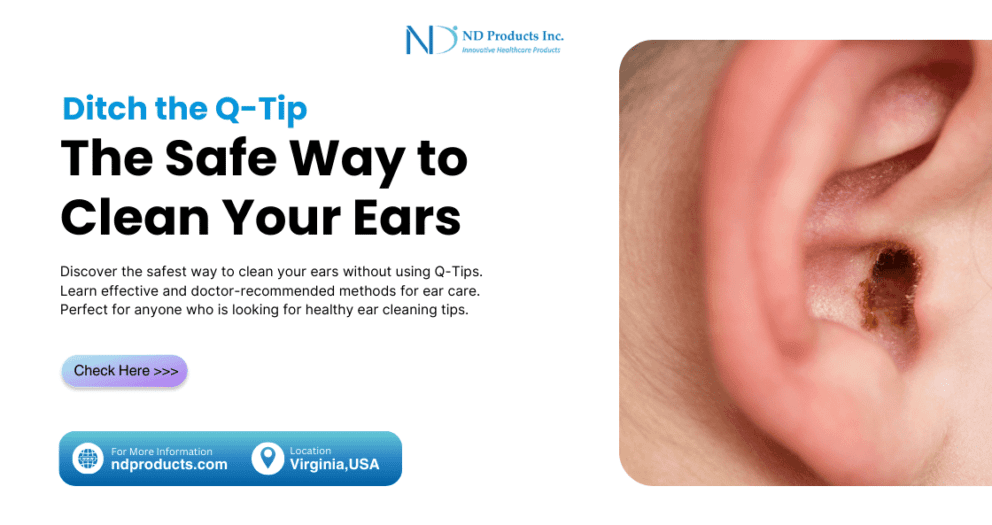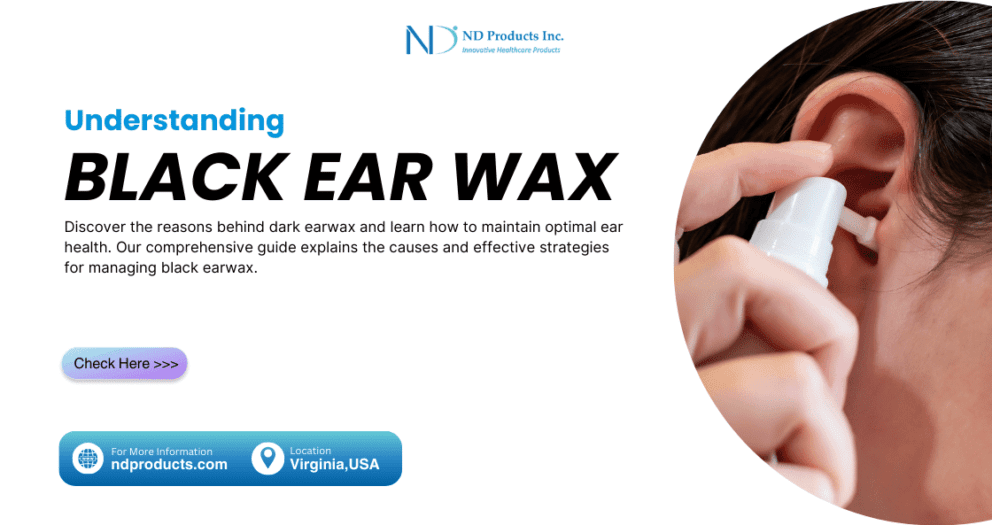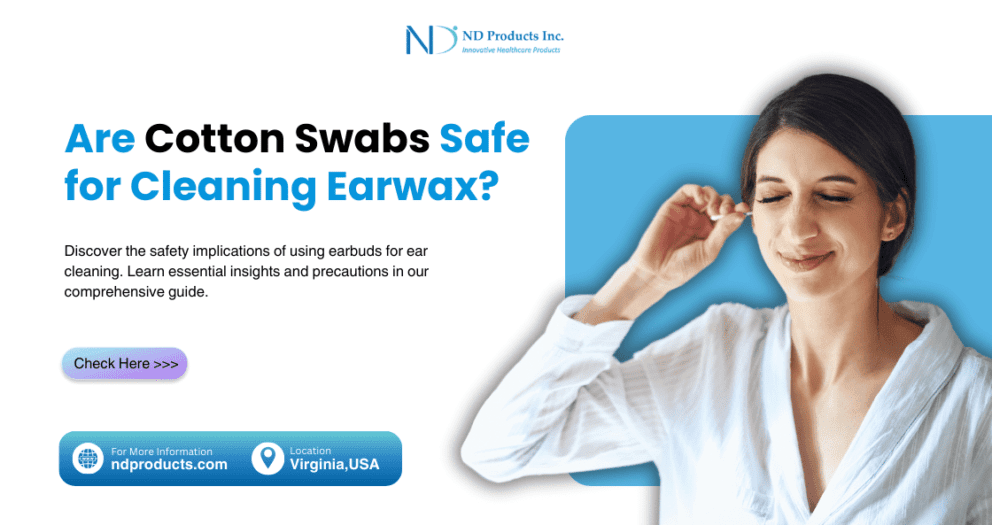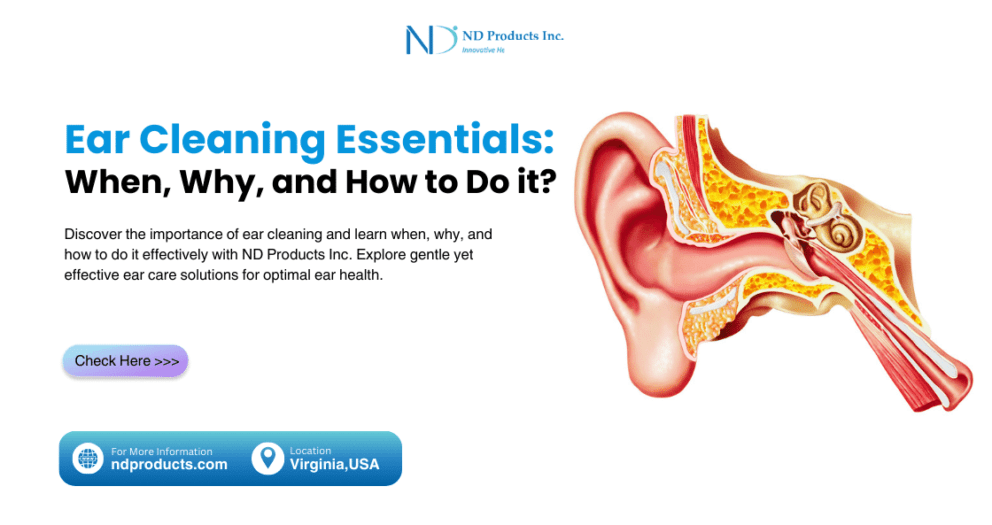Itchy ears occur frequently, and most of us have experienced this irritating sensation. Our ear skin is sensitive, thus itching may indicate that something is wrong. It is normally not significant, but if it continues, it may become a concern.
It’s simple to scratch itching ears on the outside, but it can be uncomfortable and hazardous if the irritation is inside the ear canal. Let’s look at some of the most prevalent causes of itchy ears and how to relieve them.
1. Understanding and Managing Dry Flaky Ears
Dry, flaky ears develop when the glands in our ears do not create enough earwax and oil to keep the skin moisturized. Without enough earwax and oil, the skin becomes dry and begins to flake and peel off, resulting in dry, flaky ears.
Even if the ears produce enough earwax, it can be cleared by washing them too frequently. This may cause dry, itchy ears because earwax keeps the outer ear wet.
If you have dry, itchy ears, hydrate the skin before determining what’s causing the issue. To remove dead skin from your ears, gently clean them with a soft cloth.
2. Balancing Earwax Levels Safely and Effectively
If your ears are itching due to little earwax, a similar issue may arise from too much earwax. The ear generates earwax to trap dust and debris and to keep the skin moist. Earwax collects them over time and then naturally or through self-cleaning leaves the ear.
To clean your ears, never use cotton swabs, pins, or your fingers. By using these tools, we can force the earwax further into the ear canal, clogging it. Because of the germs that may accumulate, this may temporarily affect hearing and cause itching in the ears.
If your ears are blocked with earwax, there are many things you can try at home to clean them, like using hydrogen peroxide or olive oil. You can find more information in our blog post on how to clean your child’s earwax.
3. Addressing Itchy Ears Caused by Allergic Reactions
Many people frequently experience itchy ears as a result of allergic reactions. Hay fever, commonly referred to as allergic rhinitis, is one of the most prevalent allergies that cause this discomfort. In addition to affecting the nose, hay fever can cause painful throats and itchy ears.
You might try taking an antihistamine that is available at the pharmacy to relieve the symptoms of hay fever. Antihistamine medications, such as Benadryl and Cetirizine, are well-liked choices for treating allergies. Furthermore, as soon as your physician determines that you have allergic rhinitis, you must begin taking preventive action.
4. Itchy Ears Caused by Skin Conditions
Skin diseases that affect the skin around and around the ears, such as dermatitis, psoriasis, and eczema, can cause discomfort and itching. Hydrating lotions with ceramides and hyaluronic acid as components can help calm itchy, dry, and irritated skin. Prescription-strength corticosteroid ointments could be required in extreme situations to treat the symptoms.
5. Preventing and Managing Swimmer’s Ear
Swimmer’s ear is a disorder caused by prolonged exposure to water, especially in swimming pools or natural bodies of water. It arises from the accumulation of water in the ear canal, which provides a moist environment perfect for bacteria or fungi growth.
After swimming, completely dry your ears with a towel or a low-temperature hairdryer to avoid swimmer’s ear. Alcohol- or acetic acid-containing over-the-counter swimmer’s ear drops can also aid in removing extra moisture and avoiding infection.
6. Itchy Ears Due To Food Allergy
Some people’s immune systems react differently to different foods. These meals include proteins that the immune system recognizes as dangerous and unwanted invaders, so it fights against them. Skin responses may result from this, affecting the ears among other parts of the body.
7. Ear Itching from Foreign Object Insertion
The sensitive skin inside the ear canal can be scratched by sticking foreign items like cotton swabs, bobby pins, or even fingers inside, which can cause discomfort and itching. Never put anything in your ears, and if you think something foreign is stuck there, get help from a doctor so it can be safely removed.
8. Itchy Ears Due to Bacterial Infections
Ear canal infections caused by bacteria or fungi can result in discomfort, discharge, and itching. These infections could be caused on by immune system deficiencies, ear canal injuries, or moisture accumulation. Depending on the type of infection, prescription antibiotics or antifungal drugs are usually part of the treatment. Recurrent infections can also be avoided by keeping the ears dry and clean.
9. Combatting Itchy Ears Due to Dry Skin
Environmental factors such as cold temperatures, low humidity, or excessive use of ear such as Carbamide Peroxide drops or cotton swab products can cause dry skin inside the ears. Use a drop such as a tiny amount of mineral oil or olive oil to the ear canal to reduce itching brought on by dry skin. These lipids assist in hydrating the skin and reducing inflammation while reducing itching.
10. Itchy Ears Due to Hearing Devices
Long-term use of headphones, earplugs, or hearing aids can irritate the skin in and around the ears, causing discomfort and itching. To avoid irritation, make sure your earbuds fit correctly and give them a frequent cleaning. It can also help your ears breathe and lessen itching to take pauses from wearing ear gadgets.
Bonus Content:
11. Stress and Anxiety
Through a complicated interaction between the mind and body, stress and anxiety can make ear itching worse. Engage in stress-reduction methods like yoga, meditation, or deep breathing exercises to quiet your mind and ease the physical signs of stress, such as ear itchiness.
Conclusion:
Maintaining your ear health and well-being is crucial. There are different reasons why ears can get uncomfortable, from earwax accumulation to underlying medical issues. You can successfully relieve discomfort and bring comfort back to your ears by determining the root cause of your itching and applying the necessary solutions for a safe and hygienic earwax removal method.





